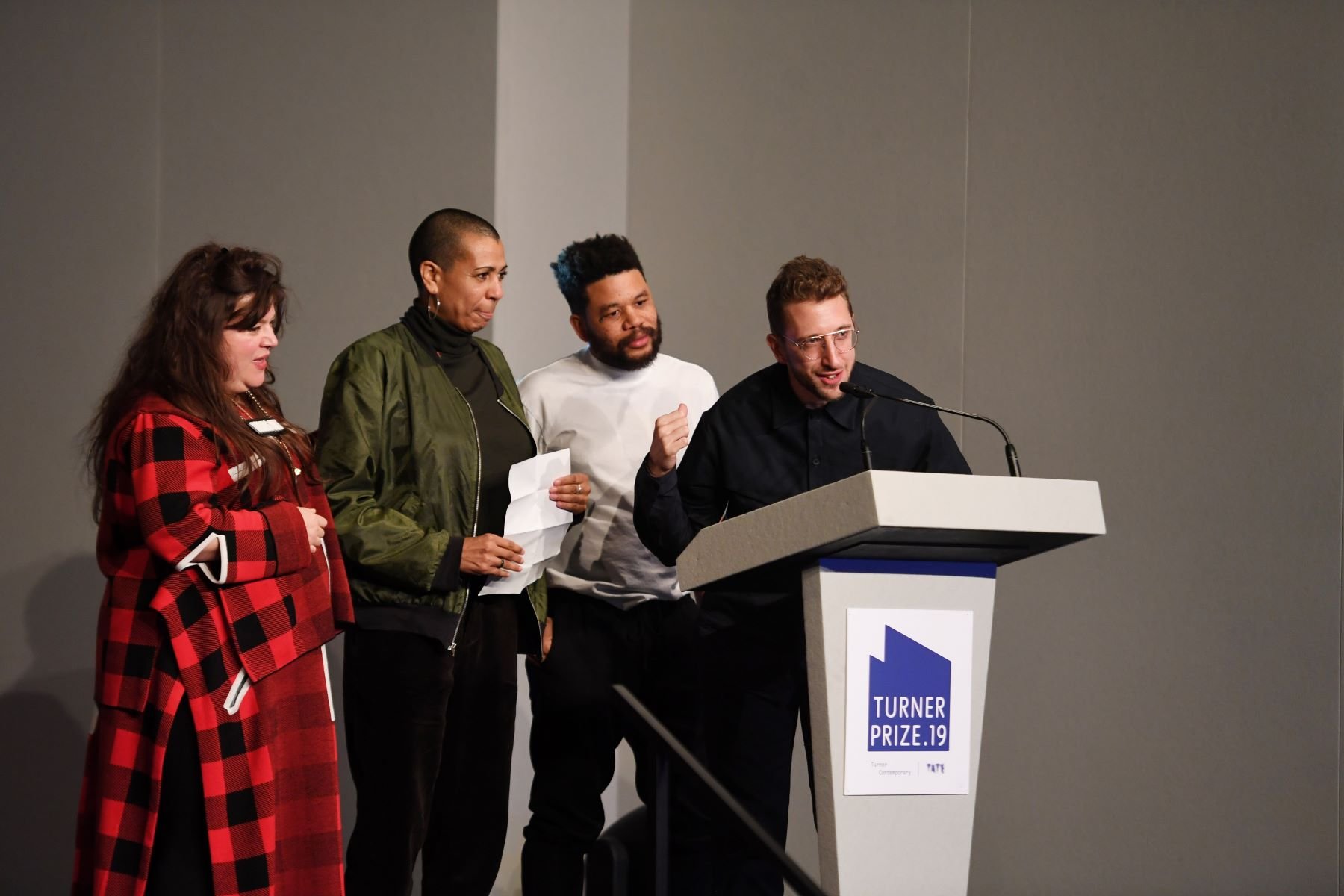
In a landmark move, the four artists nominated for the 2019 Turner Prize—Lawrence Abu Hamdan, Helen Cammock, Oscar Murillo, and Tai Shani—will receive the award as a collective. “At a time of political division in Britain and conflict in much of the world, the artists wanted to use the occasion of the Turner Prize to make a statement in the name of commonality, multiplicity and solidarity and turn themselves into a collective,” said British Vogue editor-in-chief Edward Enninful in a ceremony broadcast live on the BBC.
This shock outcome marks the first time in the history of the 34-year-old award that the prize will be shared by multiple nominees.
“After a number of discussions, we have come to a collective view that we would like to be considered together for this year’s award,” the four artists wrote in a letter to the jury. “We are therefore writing to request that you as the jury might consider awarding the Prize to the four of us collectively and not to any of us individually.”
The statement from the Turner Prize jury described what had happened. “At our meeting today, we were presented with the letter from the artists and unanimously took the decision to agree to their request. We are honoured to be supporting this bold statement of solidarity and collaboration in these divided times. Their symbolic act reflects the political and social poetics that we admire and value in their work.”
The four artists will share the totality of the prize money, including the £25,000 ($31,000) set aside for the winner, and the three £5,000 ($6,000) awards earmarked for the others. That means they each will get £10,000 ($13,000).
“This year you have selected a group of artists who, perhaps more than ever before in the Prize’s history, are all engaged in forms of social or participatory practice,” said Commock at the ceremony, reading aloud the letter co-written by the four nominees. “More specifically, each of us makes art about social and political issues and contexts we believe are of great importance and urgency. The politics we deal with differ greatly, and for us it would feel problematic if they were pitted against each other, with the implication that one was more important, significant or more worthy of attention than the others.”
She added a reference to the upcoming UK election on December 12: “In 9 days we have the chance to vote for the collective benefit of all our shared futures.” Meanwhile, Murillo and Shani both appeared on stage wearing “Vote Labour” stickers.
This year’s jury was composed of Alessio Antoniolli, director of London-based non-profit Gasworks & Triangle Network; Elvira Dyangani Ose, director of The Showroom Gallery in London; Victoria Pomery, director of the Turner Contemporary in Margate; and writer Charlie Porter. As is the case every year, the jury is chaired by the head of Tate Britain, Alex Farquharson.
Long considered one of the most prestigious awards of its kind, the Turner Prize has been handed out yearly since it was established in 1985. Artists who live, work, or were born in Britain are eligible, so long as they presented an exhibition or public artwork sometime over the course of the last year.
From 1991 to 2017, the prize was limited to makers under 50. That stricture was lifted two years ago, allowing a then 63-year old Lubaina Himid to claim the prize, becoming the first black female to do so. Last year, Glasgow-based artist Charlotte Prodger took home last year’s award, joining alumni including names like Mark Leckey (2008), Wolfgang Tillmans (2000), Damien Hirst (1995), and Rachel Whiteread (1993), among others.